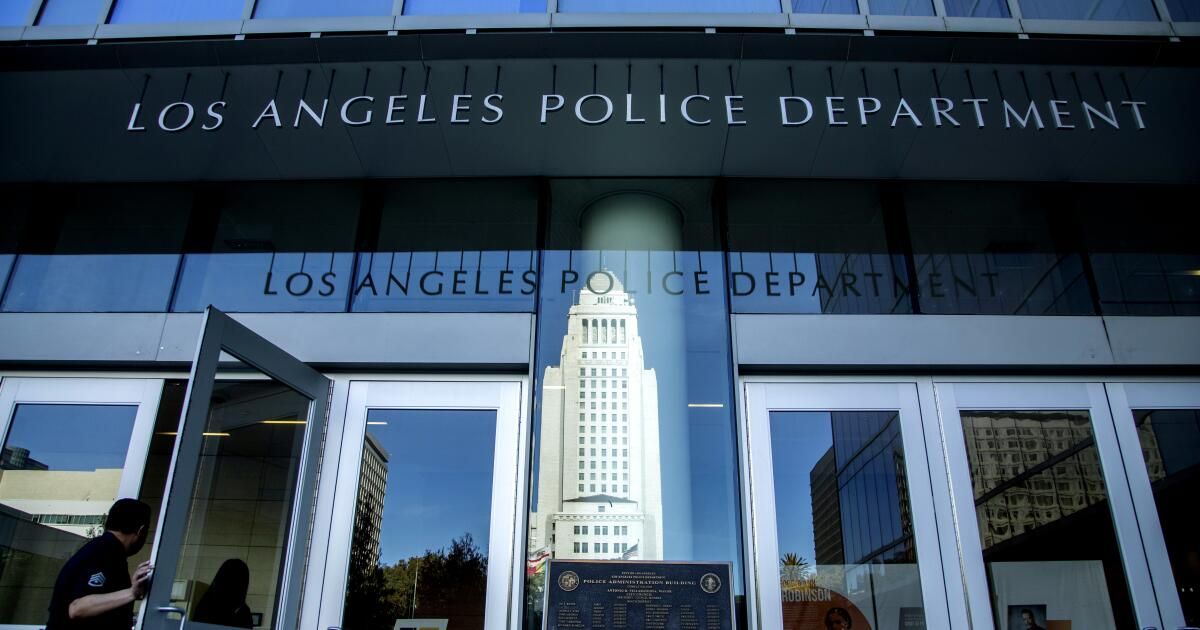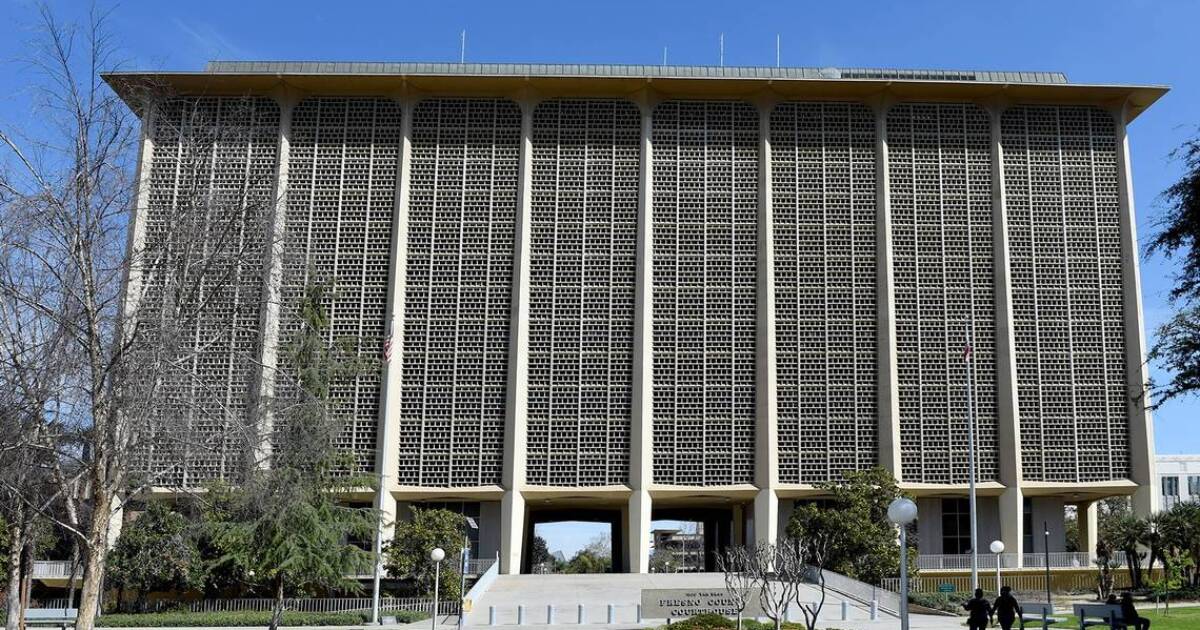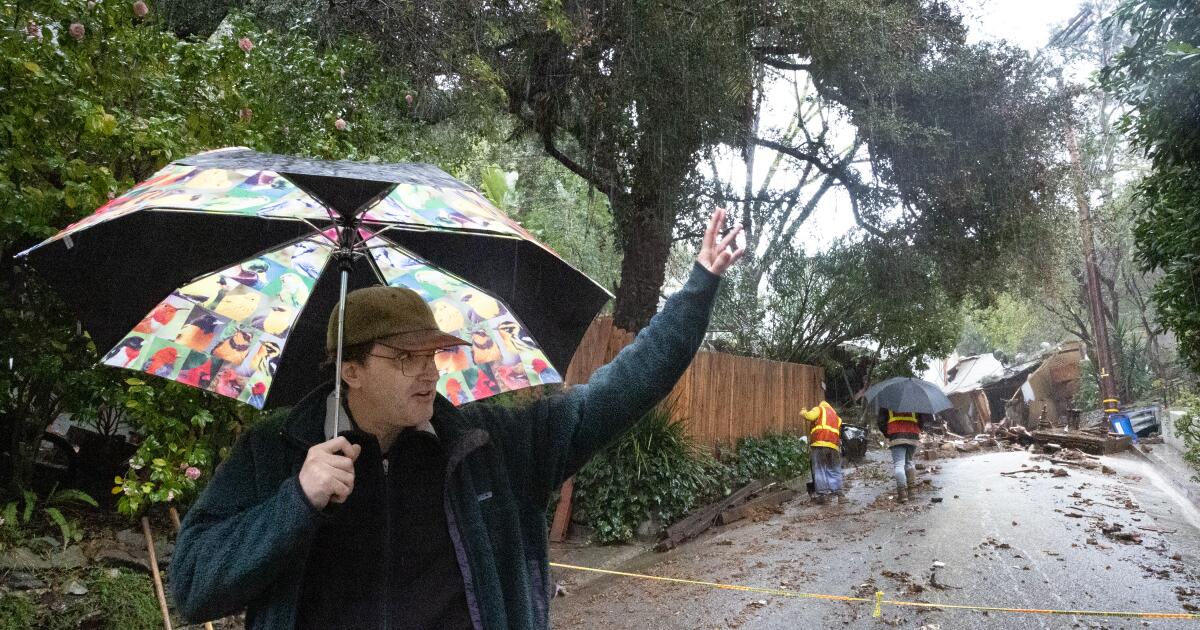In the desert around Scottsdale, Arizona, on Monday, police officers were searching for a member of an international robbery ring suspected of stealing jewelry and luxury items from homes throughout Los Angeles. Using helicopters and drones, they eventually found him hiding under a tree.
It turned out that the wanted man was a 17-year-old Chilean boy.
Authorities say the teen and his two adult accomplices later admitted to breaking into several homes, part of a growing trend of “burglary tourism” in South America.
The Los Angeles Police Department said the runaway teen was first arrested on Feb. 29 in Pacific Palisades along with three other Chileans while investigating homes in the wealthy enclave. Police located the team after a security camera captured the license plate of their 2024 Hyundai Tucson amid a series of robberies in East Hollywood.
According to police officials, in the last five years more and more thieves from South American countries have entered the United States with the purpose of committing robberies. In the case of Chile, authorities suspect that some criminals are taking advantage of the tourist visa system, which does not require a background check on travelers. Once in the country, police say, they plan heists and fence off the loot before sending their profits home.
LAPD Deputy Chief Alan Hamilton told the Times that South American robbery groups are not new to Los Angeles, but have become more active in recent months.
Although crime statistics show robberies are declining overall, Hamilton said, “The number of crimes linked to these types of gangs is very, very increasing.”
He cautioned that it is difficult to know with certainty how many robberies can be attributed to foreign thieves, but said evidence indicates they are behind dozens of robberies. He estimated that last year north of the 118 Freeway in Los Angeles there were 94 robberies, many likely committed by these crews.
“They often target homes connected to open spaces, hiking trails and canyons that give them access,” Hamilton said.
The groups mainly attack wealthy neighborhoods where homes have jewelry and high-value items that can be easily exchanged for cash, he said.
“They don't usually carry weapons. They don't want to get gun charges,” Hamilton said. “Sometimes they carry jamming devices to disable home security systems.”
While Chileans are among the most common members of these criminal enterprises, Hamilton said, they are also seeing other South Americans, including Peruvians, Ecuadorians and Colombians. The Los Angeles police and other local law enforcement agencies have formed a task force dedicated to the problem.
“I can tell you that we have a significant increase in robberies by organized groups that are outside of this country, that are coming into the country and are targeting high-level residents,” LAPD Chief Dominic Choi said at the meeting of the Police Commission on Tuesday.
In one case, on August 17 of last year, Burbank police officers arrested a man identified as Felipe Leiva Solís, a 33-year-old Chilean citizen, after a woman hiding in the bathroom of his home called to report that Four men had raped Enter through a sliding door. Leiva Solis was found in a nearby yard on Burbank's North Parish Place and is a suspect in four other robberies throughout the city, according to court documents.
Leiva Solis was released on bail but was arrested again on December 19 in Glendale by police officers who suspected him of being behind a series of robberies in the city. He was among a group of three men who tried to flee on foot when his vehicle was stopped, according to Glendale police investigator Jackie Nguy.
In court documents requesting that Leiva Solís remain in custody, Nguy alleged that the Chilean was part of “an organized robbery ring responsible for a minimum of ten residential burglaries in Glendale,” and was also linked to other robberies in Beverly Hills and others. counties.
Los Angeles Police Detective. Robert Hoebink said in a court statement that Leiva Solis' team was linked to at least 30 robberies in West Los Angeles alone. Hoebink alleged that the Chilean used a false passport to open an account at Bank of America and transferred more than $23,000 to his country despite being here on a tourist visa.
On December 27, LAPD officers captured three more crew members allegedly linked to Leiva Solis near Coldwater Canyon Drive south of Mulholland when they were called to assist Beverly Hills in a search for robbers. Inside a Ford Explorer, police said they found $1 million worth of stolen designer purses, clothing, watches and jewelry, all of which are believed to have come from a single heist.
Three more arrests would come the next day, as LAPD investigators recovered more high-end items from the group's base of operations.
On December 30, another robbery in West Los Angeles led Beverly Hills police to identify a white Mercedes GLS as linked to the crime, arresting a female driver and four other suspects nearby.
Abraham Pablo Herrera Montecino, left, Francisco Alegría Velásquez and Felipe Leiva Solís were arrested on robbery charges by the Glendale Police Department.
(Glendale Police Department)
Leiva Solís is being held without bail and is scheduled to appear in court again next week. She pleaded not guilty to three counts of robbery and one count of conspiracy to commit robbery.
Investigators say Chilean or South American groups are also behind hundreds of robberies in Orange, Ventura, Santa Barbara and San Diego counties.
In Orange County, dist. Lawyer. Todd Spitzer has aggressively prosecuted South American thieves and sued the federal government for failing to disclose his negotiations with Chile over visa requirements for travelers. He has called for measures to prevent criminals from entering as tourists.
Spitzer said the Chilean government has refused to comply with a requirement to provide the United States with the criminal records of Chilean citizens who use a visa program called the Electronic System for Travel Authorization, or ESTA. The program allows Chilean residents to enter the US for periods of 90 days an unlimited number of times. Visa requirements vary between countries, but travelers from other South American nations generally require visas with stricter restrictions before coming to the US.
With no Chilean criminal record, prosecutors have been largely handicapped in trying to prove that the defendants are linked beyond a single robbery charge, Spitzer said.
The Chilean Embassy in Los Angeles did not respond to a request for comment.
Authorities said the fugitive Chilean teenager arrested in Arizona had false Venezuelan documentation when he was arrested in Los Angeles and had repeatedly tried to evade police. After being arrested on February 29 in Los Angeles, he told authorities that his parents had left him alone in the United States with a family friend. Once he was turned over to Los Angeles County Children and Family Services, he disappeared after going for a walk in Lakewood, police said.
When he was finally recaptured this week, Scottdale Police Chief Jeff Walther said the teen had “court documentation of crimes he committed in California and before fleeing to Arizona… and some property that we are trying to link to.” other robberies.












